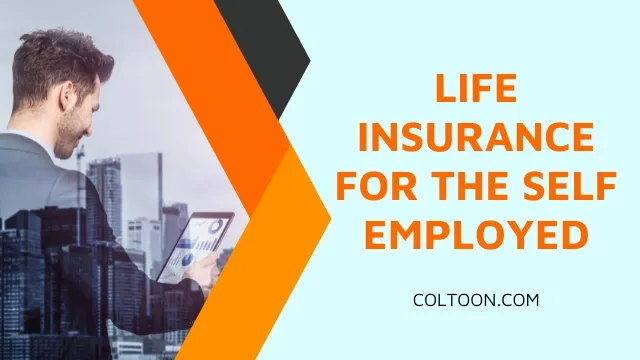Most employers offer a standard life insurance policy for all full-time employees, along with other benefits like health insurance and a 401K. Getting life insurance through your employer is an easy way to get coverage; but what's a self employed person to do?
With more and more people all over the country opening their own businesses and becoming legally self-employed, knowing how to handle things like life insurance without the aid of an official employer has become a must. The tips below should help you, whether you're currently self employed or you're planning on becoming so in the future. Read also: How to Determine How Much Life Insurance You Need.
Life insurance for freelancers / individuals
If you work independently but are not the owner of a business, you will still need life insurance to take care of any dependents you may have. Your death will cause a loss of income for your family members, and you must purchase a policy that can make up for that loss as well as ensure your funeral and medical bills can be paid.
As an individual, you'll need to research purchasing your policy from an insurance provider. Chances are that as a self-employed person, you'll be looking for a provider to offer you health insurance. Your search for individual life insurance will follow the same guidelines, and you may even find policies available from the same company from which you purchased your other types of personal insurance.
Many insurance companies all over the United States cater to the self employed by offering policies that stand independent of any employer. There are, of course, a few downsides. Policies obtained via this method can sometimes be fairly expensive. Make sure you're getting only the coverage you need, and be prepared to do some shopping around to find the best possible rates. Read also: How Do Cash Value Life Insurance Policies Work?
Life insurance for small business owners
Keep in mind that if you own your own business, you are solely in charge of that business and all of its debts. This is why life insurance is doubly important for those who own their own businesses.
If you pass away and your business is in debt, your personal assets may have to be liquidated in order to pay those business debts. This can leave your dependents in an even worse financial situation than they would have been in by simply losing your income.
Look for an individual life insurance policy that is permanent rather than term, and that is large enough to cover all of your business debt as well as provide funds for future operation.
If purchasing such a policy is a stretch for you financially, you should be able to roll the costs into your small business loan, or build it in as part of the financial business plan. Don't consider it a luxury or an unnecessary expense; it is a vital part of protecting your business and your family's interests in the event of your death.
If your business has employees, it's best to purchase small life insurance policies on each employee. Make the business the beneficiary so that in the event of an employee's death, you will have the money necessary to find a replacement and make up for any loss of income suffered by the business. Read also: A Step-By-Step Guide for Buying Life Insurance.
The bottom line
Whether you're singly self employed or you run a business, prepare to research several companies before purchasing your life insurance policy. You may find that many large, well-known insurance companies have special programs designed to cater to the self-employed individual. Take advantage of these offers, since they tend to offer you the best rates.
A provider who works with the self employed will also be prepared to talk you through your options and find the policy that's best for you. Once you've found the right provider, the decision will be much easier.
Life insurance is more important for the self employed than most people realize. Protect your business, your family, and your own peace of mind by finding the right policy.

